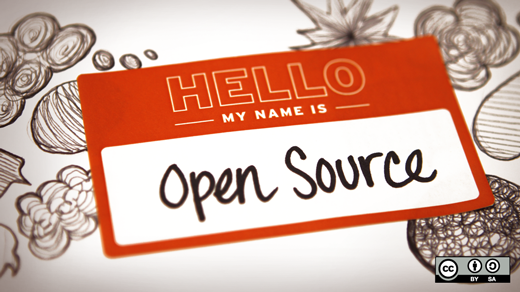Selena Deckelmann, a data architect and contributor to PostgreSQL, gave a keynote speech at the Computer Science Teachers Association conference this year called, What open source communities can do for teachers. At the end she encouraged the audience (of teachers) to connect with free and open source developers in their communities to work with them to schedule 15-20 minute talks about their work students.
(To connect, email Selena directly at selena at mozilla dot com)
Selena knows a bit about the power of sharing. She runs Postgres Open, a communitiy run conference series and regularly gives techn talks (see them all here). She believes it's vital for those who use, contribute to, write, or otherwise participate in open source software, open hardware, open data, or open access (like, Creative Commons and Wikipedia) to talk about it, and share it, with others.
Find our why in this interview with Selena Deckelmann.

What does the open source community offer teachers?
We are great at communicating via online tools and we generally have quite a bit of discretionary time, both in our work and in the rest of our lives. I'm encouraging all the free and open source community members that I know to give a give a 15-20 minute talk in a classroom.
Most kids have no idea what we in the open source community do, the names of our jobs or how to get into these careers. That's a shame, and I hope to expand both teacher and student awareness of what is possible.
What do you think about MOOCs?
MOOCs are amazing enabling technology! PyLadies often will organize meetups around a course that someone is interested in and use the materials to spark great discussions. I don't believe MOOCs are a replacement for classroom learning or for qualified teachers in classrooms.
Tell us about PyLadies.
PyLadies is a community dedicated to supporting women who code. We create events that encourage women to participate in the Python community, through workshops, meetups, social events and talk proposal writing parties. I founded a chapter in Portland in September 2012.
We've got 20+ groups worldwide today. They're all run by amazing women in local communities and their work is tailored to the local community.
Tell us about CyberSeniors.
CyberSeniors is a program of the Multnomah County Library in Oregon. Its focus is on teaching basic Internet literacy skills to folks who are new to computers. I mostly saw folks who were 55+ attending, but also had a few younger people attend who wanted to learn how to use library computer resources.
We'd teach things like: how to use a mouse, how to create and use an email account, how to search using a major search engine. These are essential skills for anyone who needs to use the web, whether to get services from the government or to communicate with loved ones. And they aren't skills that we as a society take the time to teach older community members. I taught the class three times and learned a lot about what beginners fear and the ways that user interfaces trip them up.
Who did you look up to when you started programming?
No one. I had no idea who to look up to because I really didn't know what was possible. I wasn't ever taught about who the famous programmers are and really didn't think in terms of important personalities in software until I started taking graduate courses.
In my formative free and open source software years, I idolized peoples' work I came across like Tobi Oetiker and Audrey Tang. I continue to be amazed by the work of friends like Sarah Sharp, TomLane, Valerie Aurora, and Magnus Hagander.
Do you have an open source mentor?
My first mentor was Steve VanDevender, a systems administrator at the University of Oregon and a teacher. He taught me a lot about systems, having fun at work, and about sendmail—although it may be difficult for some folks to see "fun" and "sendmail" in the same sentence!
Steve's an amazing person and was a great mentor to me. He helped me understand what open source meant, introduced me to communities of like-minded system administrators, and was my guide at the first conference I ever attended. We talked networking protocols and nerdy jokes over Korean noodles and kimchi for many years at UO. He now teaches a great system administration course there.
Advice for kids getting into open source or interested in computer science?
Kids are like anyone—they love to hear about what you're passionate about and how that could impact their lives. Knowing, for example, that you can use the same tools as the Goddard Space Center scientists because they use some open source software is really cool. Teachers know how to package ideas and demos for kids. So, if you're not sure how to present your work in an interesting way, just ask a teacher!







Comments are closed.